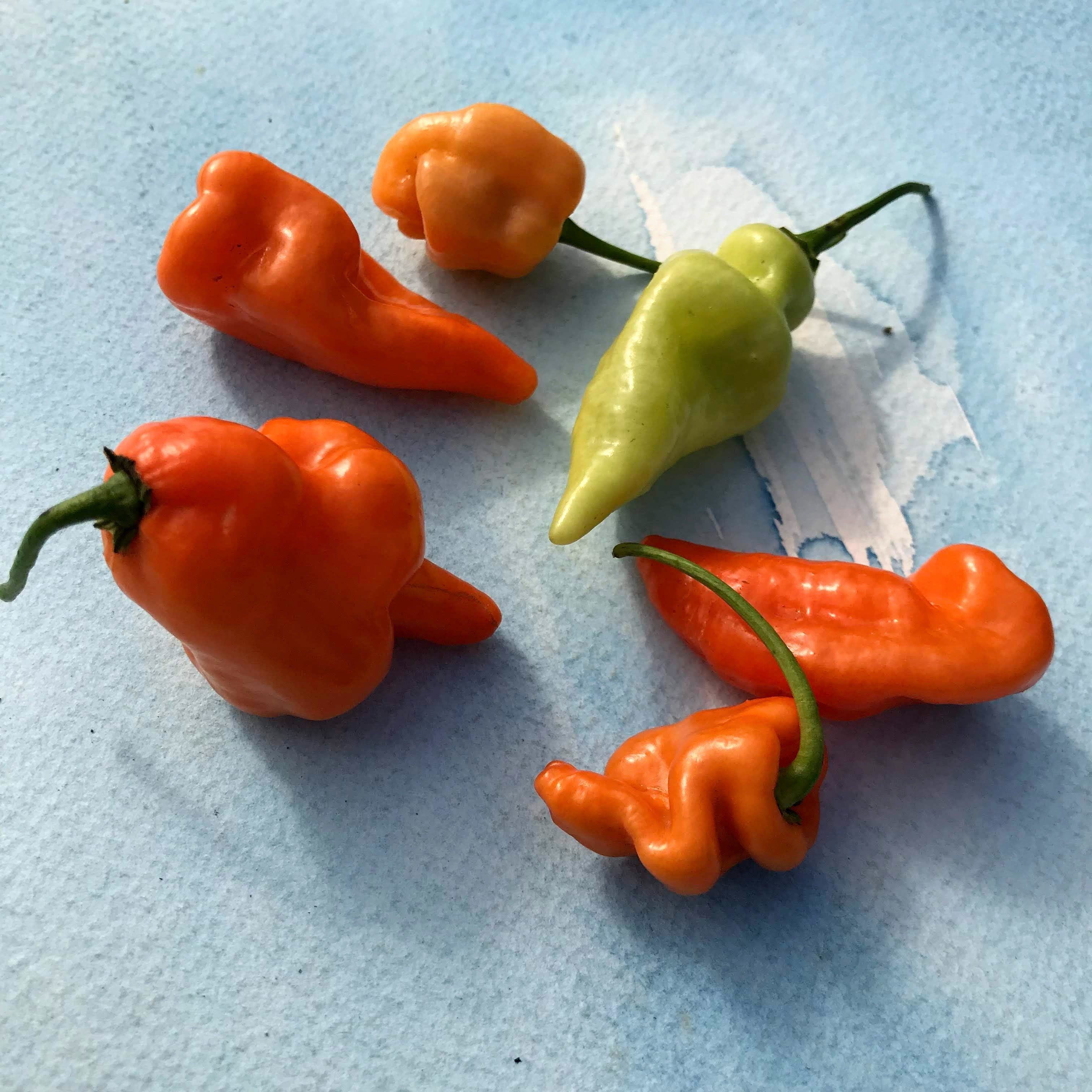1
/
of
1
Hudson Valley Seed Co.
Habanada Pepper
Capsicum chinense
Conventionally Grown
Productive, taste-bud friendly, not-hot pepper.
An amazing heatless habanero pepper bred for snacking. Small fruits are at their peak flavor when they ripen to a light orange color. The flavor, is sweet, fruity, and floral; some say with an almost melon-like, tropical note. Plants are very vigorous and productive. Bred by organic plant breeder Michael Mazourek.
Ships within 2-3 business days
Couldn't load pickup availability
Growing instructions
Pepper seed requires heat to germinate; it just won't do much in cool soil. So the first trick is to find a spot that is steadily warm; usinag a heat mat is ideal, but above the fridge may work, as might a spot near the woodstove. Sow pepper seeds at least 6-8 weeks before your last frost date; they mature later in the season than tomatoes, and to get a good crop of ripe peppers requires an early start. (If you prefer green peppers, you've got more flexibility.)
Sow peppers about a quarter-inch deep in soil blocks or plug trays. Give them a good ten to fourteen days to germinate before thinking of giving up on them. Once up, peppers grow quite slowly when young and, again, require warmth to grow quickly.
Peppers should not be transplanted until the weather is settled, usually about two weeks after tomatoes go in. Space them about 18" apart. Row cover provides a warm microclimate for quicker growth. Although most pepper plants stay much smaller than tomato vines, their stems are weak and, when loaded with fruit, they tend to blow over in late summer storms. They can easily be staked to prevent this.
Product Details
| Days to Maturity | 75 days from transplant |
|---|---|
| Days to Germination | 7-14 days |
| Height at Maturity | 18 inches |
| Sun Conditions | Full Sun (8+ Hours Sun) |
| Planting Depth | 1/4 inch |
| Row Spacing | 24 inches |
| Plant Spacing | 18 inches |


Habanada Pepper
- Regular price
-
$4.99 - Regular price
-
- Sale price
-
$4.99


